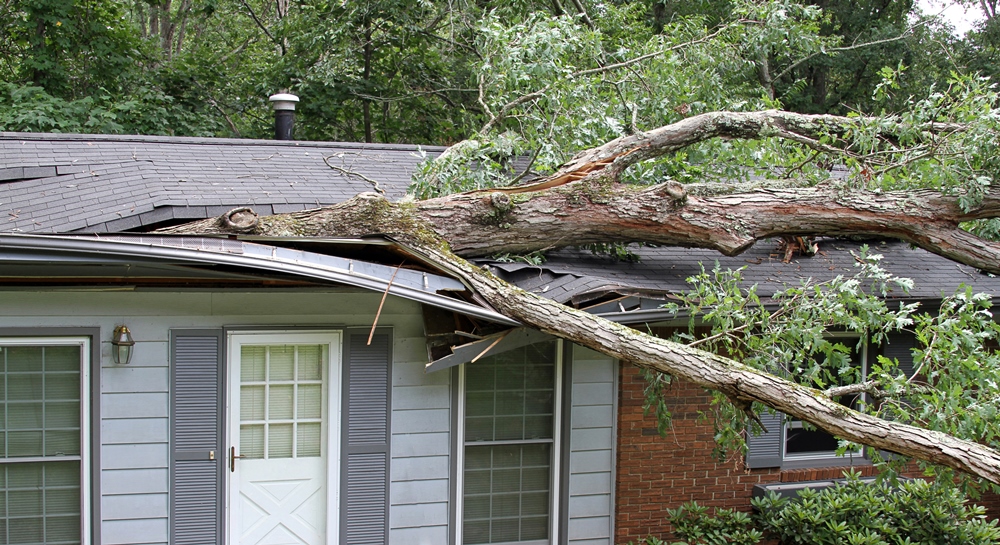Key insights
- After a storm rolls through your neighborhood, it’s important to inspect your home for damage.
- Be sure to document any damage you see, both in writing and with photographs.
- Call your insurance company as soon as you can, and be ready to give them the full details of what you have discovered.
Most homeowner’s insurance policies cover storm damage from hail, tornadoes and wind. If your property has sustained damage from these naturally occurring weather conditions, follow these tips as you work to restore your home to its original condition.
Assess the storm damage, safely
After the storm passes and it’s safe to go outside, check out your home’s exterior, yard and any above-the-ground power lines to assess the total damage.
During this assessment, be sure to take clear photos of any damage to your property. Photograph the aftermath from different angles and distances so you can clearly see the extent of the damage. This is also when you should begin a log of the damage, which will be helpful as you work with your insurance company to make a claim and get repairs.
Once you assess the storm damage to your home, call your homeowner’s insurance company if you want to file a claim. Keep in mind that after large storms, it may take more than an hour to get on the line with a customer service agent. Be patient as you wait it out. Once you have completed the call, write a note in your log so you remember what was promised by your agent or claim specialist.
Important note: Be sure not to perform this assessment until the storm has fully passed, and only if it is safe for you to leave your home. If it is unsafe to leave your home due to the damage sustained, call 911 for assistance.
Clean up and neighborhood resources
Once you’ve gotten over the initial shock and assessment, join forces with your neighbors to restore your neighborhood and share costs that arise.
Consider:
- Getting a group rate on tree or branch removal services.
- Sharing the cost of a large dumpster to haul away damaged items like outdoor furniture or sports equipment.
- Going door-to-door to check on neighbors you haven’t seen yet.
What if a tree is down?
Fallen trees are typically only covered if they damage a structure — which means that if a tree falls “free and clear,” it’s the responsibility of the homeowner to clean it up. Read up on how to handle fallen trees or branches that land free and clear in your yard, a neighbor’s yard or in your street.
What about damage from flooding?
Flooding is not covered under a general homeowner’s insurance policy, and homeowners who live in flood zones are encouraged to take out a separate flood insurance policy for their property. Read more about flood insurance here.
What sellers should do after a storm
If your home is listed for sale, it’s important to get your home assessed immediately by an inspector. They can check to ensure the storm didn’t cause any new damage to your roof, foundation, siding or exterior, or to your home’s systems and appliances.
If your home passes inspection but the property (or surrounding neighborhood) isn’t in peak condition, be sure to:
- Have your REALTOR® pause all open houses and showings.
- Work to restore your home’s exterior and your neighborhood.
- Talk with your agent to see if lowering the price of the home is necessary.
- Consider taking new listing photos if your yard has lost a large tree.
Remember, buyers are looking for leverage and seeing a neighborhood or home in disarray may cause them to bid lower. By working to get your home in tip-top shape again, you may not have to worry about losing money due to something that was out of your control.
Need help restoring your home to its peak condition?
Get in touch with Edina Realty or your agent today for one-to-one insights on how you can get your home back in tip-top shape. Then, whether you decide to sell or stay, you’ll have the reassurance that the home is safe and in its most ideal condition.
